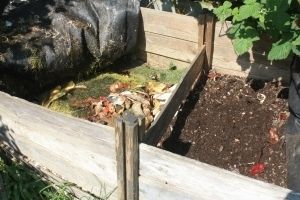Choosing compost

Compost is a finely-balanced thing, a complex blend of minerals, nutrients and organic matter judged so your plants perform at their best. It's no surprise, then, that there are nearly as many types of compost as there are varieties of plant.
We stock dozens of varieties in our garden centre in London, each with their own particular use. Use our guide to help you pick the right one for your plants.
- Peat-free: A more environmentally-friendly alternative to conventional peat-based compost, using substitutes like recycled green waste, coir or composted bark. Fine for all general garden uses, including containers.
- Peat reduced: Similar to peat-free, but with a higher proportion of peat - up to 50% depending on the manufacturer – giving a more even structure.
- Pre-added feed and water granules: compost with a slow-release granular feed already added keeps plants growing vigorously without you having to do a thing; added water granules hold on to water, releasing it more gradually – great for hanging baskets.
- Soil-based composts: Heavier soil-based blends are usually mixed to the John Innes formula in three grades from John Innes no. 1, for seedlings, to John Innes no. 3 for mature shrubs.
- Seed compost: Fine-grade seed composts are sterilised to eliminate disease and low-nutrient so your seedlings don't get scorched.
- Ericaceous compost: If you garden on neutral or alkaline soils and love acid-loving plants like rhododendrons or blueberries, choose this low-pH compost to give them just the conditions they need.
- Rose, tree and shrub composts: often soil-based, these are designed to mix into planting holes to get newly-planted trees and shrubs off to a flying start.
- Soil improvers: organic soil improvers like well-rotted farmyard manure or composted bark open up the soil's structure, breaking up heavy clay and helping free-draining soils hold on to moisture.
- Specialist composts: certain types of plant have very special needs. Whether you're growing orchids, bonsai, citrus or aquatic plants you'll find a compost to cater for them in our garden centre.
Please ask the staff in our London garden centre for more information and advice about choosing composts.
